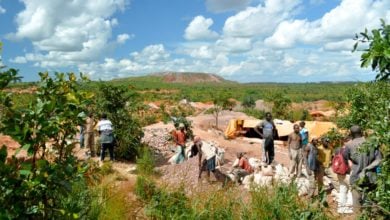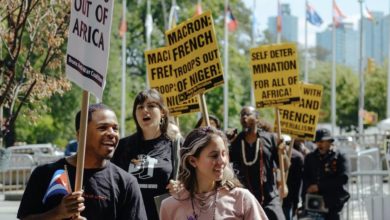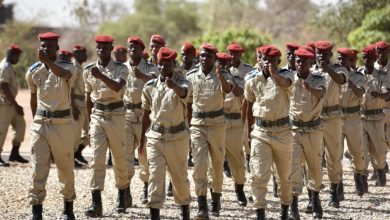After years seeking justice, victims of Royal Dutch Shell in Nigeria may be getting their day in a U.S. court against the oil giant. U.S. District Judge Kimba Wood set Feb. 9 as the date for a trial related to Shell’s complicity in the hanging of a number of political activists by Nigeria’s military government.
|
Thirteen years later, the struggle in Nigeria continues strong. On Sept. 13, the Movement for the Emancipation of the Niger Delta, Nigeria’s largest militant group, declared an “oil war.” For the next five days, MEND attacked oil installations and pipelines and clashed with the Nigerian army. The group targeted facilities belonging to Shell, Chevron and Nigeria Ltd. before calling a ceasefire on Sept. 20.
Western media and the Nigerian government defend the military response as merely a police action against out-of-control banditry. Progressives should not be fooled by such distortions of reality.
Nigeria, Africa’s most populous country, is one of the leading oil-producing nations in the world. The oil industry generates massive wealth, yet the country’s deeply corrupt ruling class steals most of this wealth for itself.
This graft results in tremendous poverty alongside Nigeria’s considerable wealth. At least 54 percent of the population lives on less than $1 a day. Urban unemployment is 12.4 percent and rural unemployment exceeds 23 percent. Only 61 percent of Nigerian children have access to primary education. Fewer than 45 percent have access to secondary education.
In the oil-producing states of the Niger Delta region, the deepening social and economic crisis is at its most acute. Broad swaths of the area have no electricity. There are very few doctors. Most people live in absolute poverty.
Nigerian President Umar Yar’Adua has launched an alleged national drive against corruption and purports to be bringing development to Nigeria’s impoverished regions. Instead, Yar’Adua has himself been dogged by allegations of rampant corruption. He is not the first Nigerian president to promise reforms, only later to turn out to be the beneficiary of the same sort of political sleaze he pledges to curb. Government corruption has only helped militant groups draw support and sustenance from the population of the Delta regions, effectively aiding their continued operations.
The militants and their supporters remain deeply skeptical of the so-called peace process, particularly when the Nigerian government continues to aggressively arrest and prosecute leaders of their organizations. The military has intensified its fight against militant groups, launching assaults with air, sea and ground forces, all part of a joint taskforce organized in the region.
The heated conflict has brought the social cauldron to a boil. The delta states are crowded with a vast array of armed groups. Some are gangs raised under the patronage of local politicians vying for power. Other groupings have come together with the aim of extracting oil from major oil company pipelines in a process known as “bunkering.”
Despite the government’s attempts to delegitimize its opponents, genuine political resistance exists in the Delta. Armed militants confront both the state and multinational oil companies, demanding a greater share of their country’s immense oil wealth for impoverished local regions.
Since early 2006, attacks by these groups have reduced Nigeria’s oil production by about one-fifth. In order to legitimize its war against these political organizations, the government intentionally blurs the line between progressive forces and profiteering gangs.
President Yar’Adua has promised development for the Delta region and has set up a new ministry to that effect. Not surprisingly, the Delta area has seen little change.
Militant resistance is the inevitable consequence of the oppressive living conditions in the Delta region of Nigeria. Progressive-minded people in this country should support such struggles of the Nigerian people for meaningful social and economic welfare.






